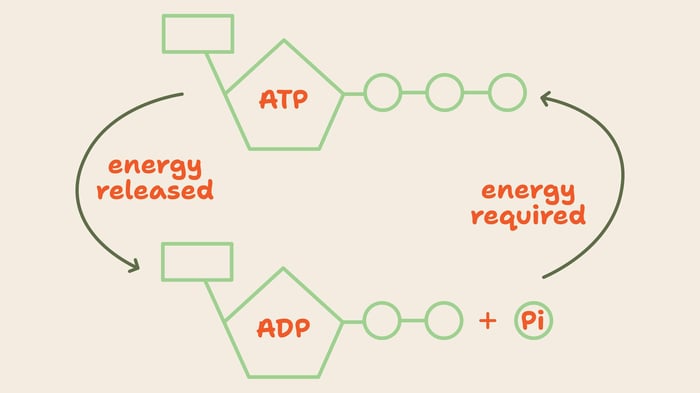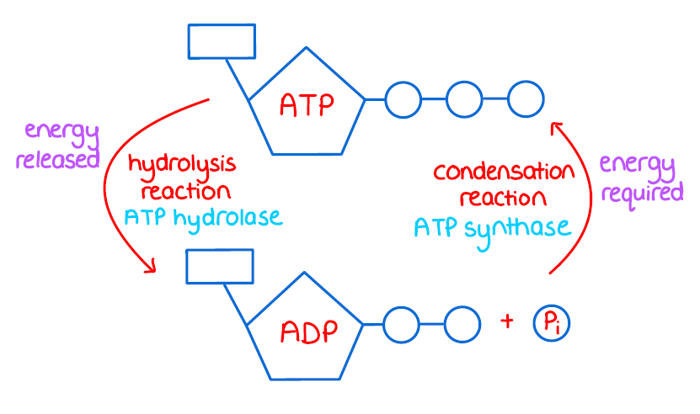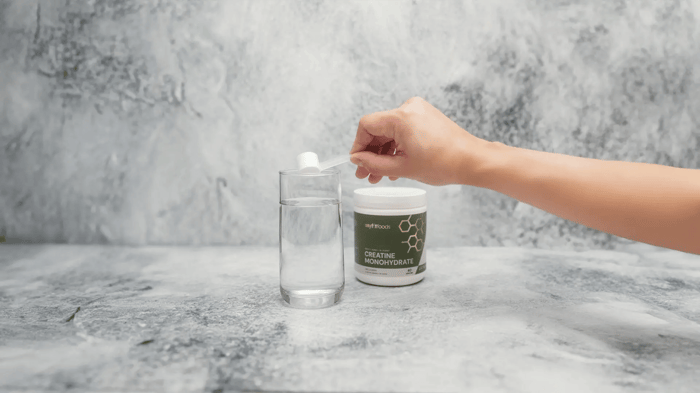In Creatine is for Everyone we'll explore how:
Creatine supports muscle, brain and heart function.
- Making it beneficial for nearly everyone, including older adults and those who don’t work out.
Creatine helps produce ATP
- Improving energy availability for essential functions like thinking, digestion, and movement.
Creatine supports mental health and cognition
- Studies show it may significantly reduce symptoms of depression and improve brain function after sleep deprivation by boosting metabolism.
Creatine is for Everyone
Maybe you – maybe even your friend, your grandma, and your grandma’s friend.
There is a prevailing misconception that creatine is only for “gym people”, for those focused on adding more muscle to their muscles.
It's not true; that's antiquated thinking, and it's time to reframe.
Yes, creatine is associated with muscle support. But consider this: the heart is a muscle, too. And while the brain isn’t technically a muscle, it works incredibly hard, using up about 20% of your body’s total energy. That’s a big deal, and if the brain could benefit from creatine (spoiler alert: it can), why not help it out!
If you have a heart and a brain, which I know you do, you, too, may stand to benefit from this affordable, safe, and extensively studied supplement.
Hello Fit Fam, Fit Friends, and Fit Prospects:
It's your friends here at MyFitFoods, and we're on a mission to deliver healthy, accessible eating and supplementation to our nationwide MyFitFoods community. We believe that good living is composed of a series of daily behaviors fueled by healthy, accessible options and solid information. That's why we’re here, and that's why our founder and CEO, Mario Mendias, began this company almost 20 years ago.
What is Creatine?
Creatine is an amino acid that allows your muscles to function optimally. Amino acids are molecules that combine to form proteins. However, creatine is a non-protein amino acid, meaning it is not used to synthesize protein, but instead has a direct impact on your physiology (normal functioning) by helping create energy production and fuel metabolism.
The three amino acids that compose creatine are:
Glycine
Arginine
Methionine
Okay, so far so good but…
Where is the Creatine?
Creatine is produced in animal muscle, and common sources of creatine in our diet include:
Beef
Fish
Eggs
However, getting adequate creatine through regular eating can be challenging for many. Nutrients through food should be the first priority, with supplementation being the last line of defense. That said, creatine remains on our very short list of supplements we advocate for. Some say the same amount of creatine that is in one 5g scoop would be the equivalent of eating almost 3 lbs of meat. (1)
More fascinatingly, creatine is produced every day in small amounts (~1g per day), primarily in the liver, but also in the pancreas and the kidneys. This naturally occurring creatine plays an important role in cellular metabolism and energy production, especially within organs that have high energy demands.
About 95% of the body’s creatine is found in muscle tissue, with the remainder in the:
Brain
Heart
Bone tissue
By supplementing with creatine, this helps the cells around the tissue produce more:
ATP: Your Body’s Energy Currency
We generate energy using a molecule called ATP, or Adenosine Triphosphate. ATP is the currency our cells do business in when moving energy around the body. Think of ATP as USD and your body as global trade, and cells rich in creatine are unlikely to face a liquidity crisis (energy crash).

ATP fuels basic functioning, such as:
Thinking
Digestion
Waste removal
Muscle contraction
Here’s where things get interesting…
When energy is expended, ATP gives up a phosphate molecule, turning ATP into ADP, or Adenosine Diphosphate.
Creatine stores can recharge the ADP by replacing its missing phosphate molecule and turning it back into ATP. With extra creatine, your muscles have a more constant supply of energy for the work you're requiring of them. This understanding reinforces our classical conception of the purpose of creatine as a muscle-building supplement.
And while these specific benefits are immensely cool and very well documented, we will only touch on these briefly. Because, after all, creatine is for everyone.

Creatine and The Body
Classical Creatine
Mozart maxing out, Bach boosting reps, all while Pavarotti sets a new PR. This is the "classical" understanding of creatine and its use case, and it's all true (don't quote us on Mozart).
Most often, creatine is discussed in the context of muscle performance, and it has been shown to improve strength, muscle mass, and body composition for people who engage in both weightlifting and endurance exercise.
It's well documented that about 5–10 grams of daily creatine monohydrate can increase creatine phosphate stores in muscles. This increase draws more water into muscle cells, making you stronger and enhancing power output at higher intensities and for longer durations.
In 2018, the International Society of Sports Nutrition stated:
“Creatine monohydrate is the most effective ergogenic nutritional supplement currently available to athletes in terms of increasing high-intensity exercise capacity and lean body mass during training.” (2)
Ergogenic means performance enhancing. I didn't know that either (if you did know that your next Simple Squeezed Fit Juice is on me).
And that right there is the creatine we all know and love, but what's amazing is that's only one dimension of this supplement.
Creatine and Osteoarthritis
Osteoarthritis, the most common form of arthritis, is a degenerative joint disease most prevalent in adults over 50 years old, affecting approximately 15% of those over 60, according to the WHO (3).
In a randomized double-blind study, researchers took 20 post-menopausal women with knee osteoarthritis and split them into two groups:
Creatine + lower body resistance training
Placebo + lower body resistance training
At the end of the 12-week trial, those who supplemented with creatine reported significant improvements in physical function, stiffness, and quality of life:
“CR supplementation improves physical function, lower limb lean mass, and quality of life in postmenopausal women with knee OA undergoing strengthening exercises.” (4)
It is worth noting that both groups reported a significant reduction in pain, suggesting that resistance training alone is a great strategy for combating osteoarthritis, and reinforcing our MyFitFoods mantra that daily movement is a non-negotiable element of a well-balanced life.
Creatine and the Brain
The human brain weighs about 2% of total body mass. However, despite this low percentage, the brain is an intensely metabolically demanding organ, consuming approximately 20% of the total energy produced by the body. (5)
Depression
Depression has traditionally been understood to be a condition caused by a chemical imbalance, specifically, a serotonin deficiency. However, there is increasing evidence suggesting that impaired brain metabolism could play a significant role in the cause of depression.
One example of this is that people with metabolic disease are more likely to be diagnosed with depression. (6) It is believed that poor cellular metabolism might compromise brain cells' access to energy reserves, which could make the brain more vulnerable to internal and external stressors, leading to a myriad of mental conditions like depression.
Creatine can help, and this is big.
Multiple studies illustrate that patients with depression frequently have low creatine levels in key areas of the brain, including the prefrontal cortex. The prefrontal cortex is responsible for:
Decision making
Reasoning
Personality
Social behavior
In this study, severely depressed patients (adult women) who had not responded to traditional antidepressants, including SSRIs, were given 4–8 grams of creatine a day for eight weeks. The results showed that creatine was able to decrease the severity of depression by about 60%:
“Mean HAM-D (Hamilton Depression Rating Scale) scores declined from 18.9 (SD, 2.5) at pretreatment visits to 7.5 (SD, 4.4) (P < 0.00001), a decrease of 60%. Participants did not experience any serious treatment-related adverse events.” (7)
The results were so encouraging that many other studies at the intersection of creatine and depression have since been conducted, yielding similar conclusions, reinforcing the scientific data that supplementing with creatine can substantially impact mood and mental health.
Creatine and Cognition
It's well known that cognitive performance is significantly impaired after a sleepless night. If you’ve ever needed to function after a night of no sleep or bad sleep, then you know this feeling well.
One reason for this might be that neurons, a type of cell in our brains, appear to have increased energy requirements after sleep deprivation.
“...it is estimated that neurons consume 75%–80% of the energy produced in the brain.” (8)
Creatine’s response to mental fatigue after a sleepless night:
“Hold my Creatine”
As indicated in this double-blind trial published in Nature:
15 subjects (8 female, 7 male), aged 20–28, were brought to an inpatient setting to complete brain scans and cognitive tests before being kept awake all night.
After baseline testing at 6 pm, they were given either:
0.35g per kg of body weight of creatine, or
0.35g per kg of body weight of placebo
Participants then underwent brain scans and cognitive testing every two hours until 5 am.
The study found:
- The creatine doses were bioavailable in the brain, meaning the supplement significantly raised brain creatine levels immediately.
- Subjects given creatine reported significantly less fatigue.
- Creatine supplementation significantly improved short-term memory and reaction speed in the testing environment.
This study illuminates the idea that supplementing with creatine after insufficient sleep can help bring energy to the brain, stimulating laggy neurons and giving you an immediate boost.
Case Closed on Creatine?
No, not even close. Believe it or not, we barely scratched the surface when it comes to creatine.
There is so much compelling data to sort through that it was too much to include in one blog alone. We did not even discuss some of the amazing research emerging around creatine’s potential for post-concussion and postpartum recovery, as well as its benefits for neural plasticity in aging adults.
Creatine is for everyone. It truly is. Very few people experience any adverse side effects. It is one of the most researched supplements of all time, and as discussed, you’re producing the stuff as we speak.
I suppose now is as good a time as ever to tell you that we're proud to release our own MyFitFoods Creatine.
Try our creatine, or don’t! The point is we want you to consider throwing it into your health and fitness rotation, and when you do, let us know what you think!
And please remember: when it comes to an all-encompassing health and fitness routine, there are no shortcuts. There are no substitutes for good eating, daily movement, hydration, and rest. However, there are some low-hanging fruits to supplement your journey along the way, and we think creatine is one of the most powerful ones.
And lastly, if you're one of my friends who knew what ergogenic meant, I owe you a Simple Squeezed Fit Juice! Please email me at maxg@myfitfoods.com to take me up on the green juice boost.
Okay, Creatine is for Everyone, Now What?
If you care about performance, recovery, brain health, or just getting the most out of your day-to-day energy, consider adding creatine to your daily toolkit.
Try MyFitFoods Creatine and take a smarter step toward a stronger self.
Disclaimer: Always consult with a healthcare professional before starting any supplement.




